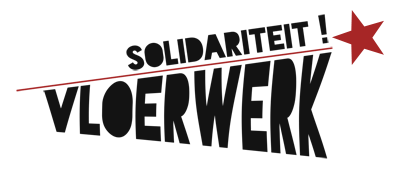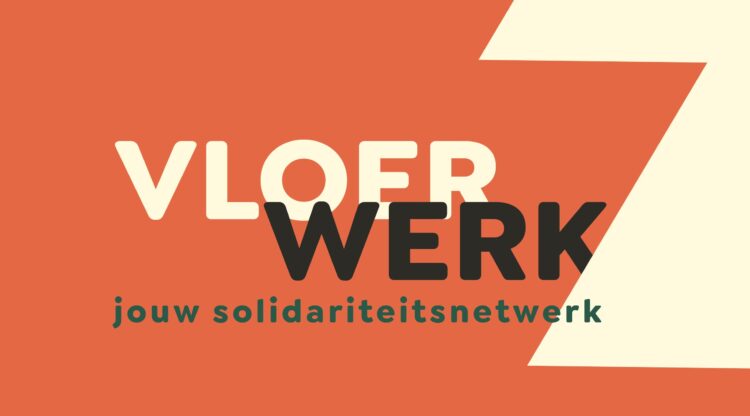
Newsletter november: Consolidate growth and keep on building.
Hey Vloerwerkers, in this newsletter you read the following:
- We’re growing but we have challenges
- Collaborations with Fairwork and de Vrije Bond
- Vloerwerk is going to publish more
We’re growing but we have challenges
It’s still an extra challenge to organise in corona times, especially meetings are difficult. We had a lot of cancellations, but…. With three new organising members and an organiser who recently returned to Amsterdam, the ratio new/old was really good during the last meeting. The new members explicitly expressed interest in being organisers and are up for the challenge. The vibe was good, the jokes and laughs went on to no end. The debriefing with homebrewed apple cider and herbal pear bitter was also very nice.
Vloerwerk has the luxury problem of too many cases, new members and possible collaborations. Personal contact is essential for organising. We need to keep focussed on this. The growth gives us space that we need to use to keep on building our organisation. Too much work goes to one individual at the moment. The old structures have been replaced by a linchpin structure. This is a recurring problem, and it’s been going on for too long. That’s heavy for the individual in question, and politically and organisationally undesirable. It won’t be easy to set this straight, but we have to.
Collaborations with Fairwork and de Vrije Bond
Fairwork is a sympathetic organisation for migrant workers. Besides a core crew of permanent employees, they have a lot of volunteers who free up part of their working week to help people from their own language area. Just like Vloerwerk, Fairwork supports workers when they are being treated unfairly and we recognize ourselves in their work. But we’re not the same. Fairwork focusses on legal trajectories and influencing politics. Vloerwerk is all about direct action and self-organisation. We are based and active in and around Amsterdam. They have a nationwide network and are also represented in the countryside, where there are a lot of migrant workers. That makes us complementary organisations.
We’ve decided to exchange skills and knowledge with each other. If one of us can’t help a worker sufficiently, there’s now two available networks. Because we do similar work but in a different way, we can learn a lot from each other. In what specific form this will be, we don’t know yet, but we aim to teach each other what we know.
De Vrije Bond is an anarchist organisation. They too are growing rapidly. Vloerwerk has always been close with de Vrije Bond and there’s a good chunk of overlapping organising members in Amsterdam. De Vrije Bond has some nice new posters, but no established fly-posting tradition. Vloerwerk does, so we decided to go fly-posting together. One of our new members co-organises this. Our poster campaign was paused for a while as we were overwhelmed with responses, but now it’s time to continue.
Vloerwerk is going to publish more
Vloerwerkers take pride in achieving all our goals with every campaign. But the majority of workers don’t reach the campaign phase with us. This might be because a letter of demands already does the job, or because they get cold feet, move back to their country of origin, or because they take their loss and find a new job. In the past year, we’ve experienced this with i.a. coffeeshops, healthcare, hospitality and agriculture.
It’s a waste not to share these small successes. Like the French lady in April, who used our advice to confront and own her boss, claiming thousands of euro’s. It’s important that more people see these
wins, so they may be inspired by them. We want to be sharper on this. The cases that seem to move on to campaigns, also need a stronger journalistic component. Our contact with the Spanish farm workers was compromised because our primary contacts migrated. Story gone, inspirational potential gone! We can do better.
To kick this off, we’ll soon publish a piece we made in collaboration with a network of Greek restaurant workers. As a primer, we’re going to publish this not only in Dutch and English, but in Greek as well. Because we’ve noticed that our publications are valuable for our findability for workers. Significant amounts of migrant workers only really know their own language, besides some broken English. It’s mostly these workers that do the dirtiest jobs and are most vulnerable.
The multilingual problem persists. Maybe it’s unsolvable. We all speak the language of solidarity. But that doesn’t mean we can always easily express ourselves with confidence in a matter that everyone understands. There’s no simple solution for that.

